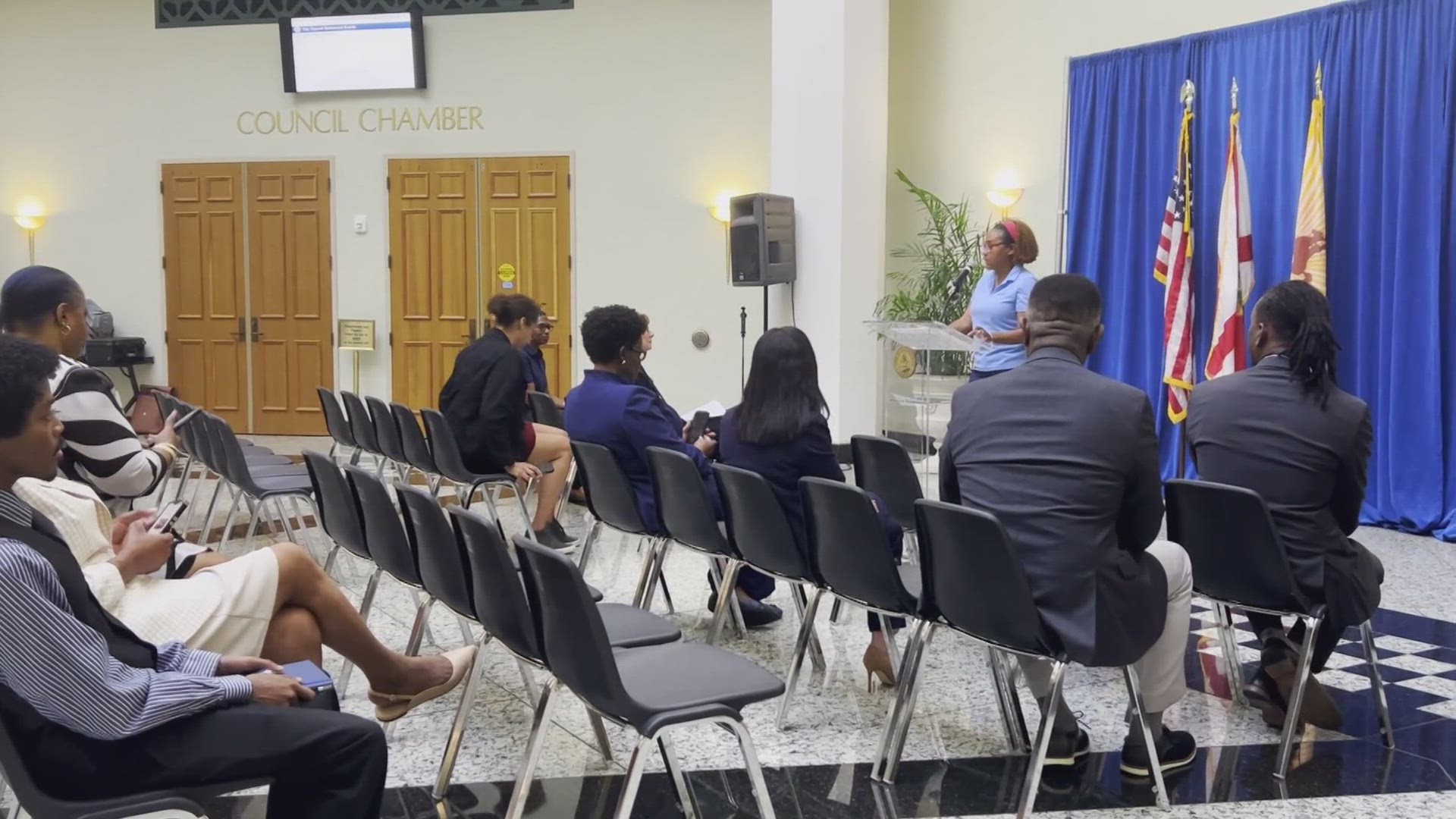JACKSONVILLE, Fla. — Members from several Florida organizations gathered at Jacksonville City Hall on Wednesday to celebrate second chances.
In honor of Second Chances Month, representatives from organizations including Florida Alliance Coalition and Operation New Hope, among others, highlighted the successes of initiatives for people with misdemeanor offenses in the probation system.
"Second Chance Month is an opportunity to shed a light on how we can all work together as a community - those of us impacted by the justice system, law enforcement, employers, government, and neighbors all at the table - to make our city safer and stronger," said Tanaine Jenkins, Florida state organizer for REFORM Alliance and representative for the Florida Safety Coalition.
The move comes after Senate Bill 752 was signed into law in 2022, aimed at helping improve the lives of people on probation for crimes that come with less severe punishments while also reducing the size of the state's probation system.
The bill, signed into law by Gov. Ron DeSantis, created two incentives for misdemeanor offenders on state probation or community control, both alternatives to incarceration.
The Florida Department of Corrections defines community control as an intensive supervision program where people are confined to their homes unless they are working, attending school, fulfilling public service hours, attending treatment, or another activity approved by a probation officer.
The law offers incentives like earning credits for education and workforce achievement, while also knocking off time on probation periods.
For example - for every six months someone works full-time, that person can earn 30 days off their probation term.
The same goes if individuals attend school for a GED, vocational certification, or academic degree; however, they would receive 60 days off their probation period for completing educational credits.
Again, these incentives are only offered to people with misdemeanor offenses.
While these incentives help people get their lives back on track, it also reduces the chances of turning back to criminal activity.
"Real public safety doesn't come from perpetual punishment," said Jenkins. "We have to understand that individuals need the tools to be successful with their second chance. And if we don’t give them the tools needed to succeed, then how can one succeed?"
The law allows small businesses to create job opportunities and safe spaces for people leaving incarceration. These businesses include restaurants, construction groups and nonprofits throughout Jacksonville.
"By motivating people to keep a steady job and pursue education, while also supporting their rehabilitative goals, these reforms will improve success rates for people on probation, reduce the likelihood that individuals return to criminal activity, and strengthen communities," the REFORM Alliance said in a release.

